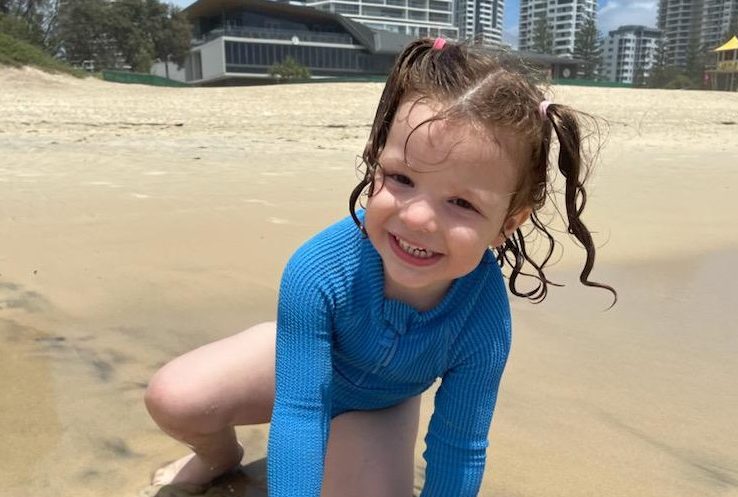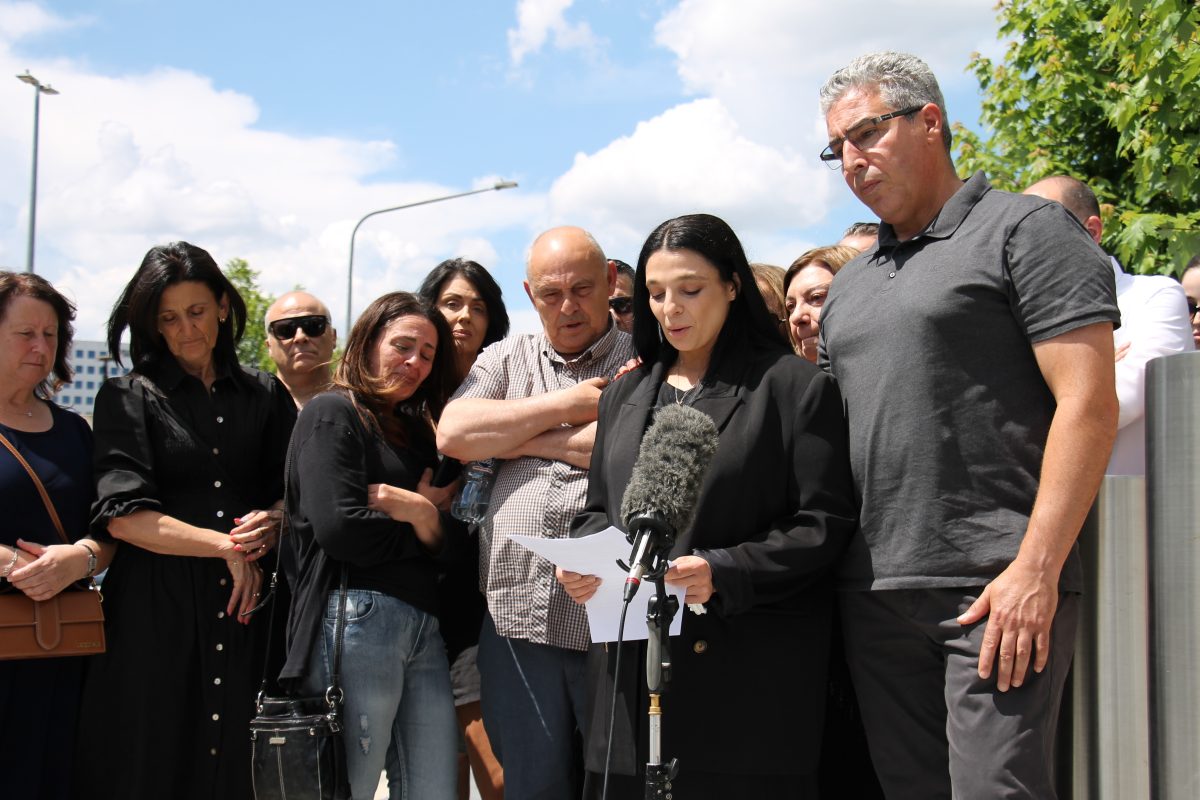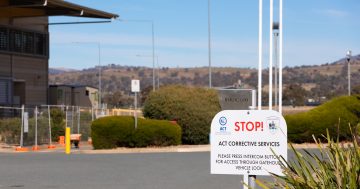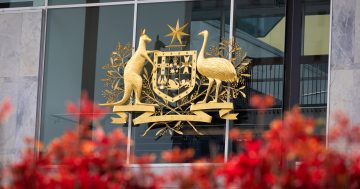
Rozalia Spadafora died in The Canberra Hospital on 5 July 2022, the day after her fifth birthday. Photo: Supplied.
CONTENT WARNING: This story contains material that may be distressing for some readers.
The mother of a little girl who died the day after her fifth birthday said “the chamber was loaded” against Rozalia Spadafora when she was taken to The Canberra Hospital.
Healthcare provided to the seriously ill child was too slow and hampered by miscommunication, an inquest has found.
The five-year-old died at TCH on 5 July 2022. Her death was caused by a heart condition, called myocarditis, brought on by an influenza A infection.
Speaking outside court today, Rozalia’s mother, Katrina Spadafora, said the family continued to live with their grief.
“We will never get closure for this. This is not a thing that you can move on from,” she said.
“She was the best and we can never move on from losing her. Nothing will ever take this pain away.
“We have to try to move forward, but we can’t.”
A coronial inquest into the circumstances surrounding Rozalia’s death started in October 2023, with nine days of hearings.
Speaking to a courtroom packed with Rozalia’s family on Friday (6 December), Coroner Ken Archer said the evidence showed that while there was a “guarded” prognosis for children with myocarditis, Rozalia’s care was delayed in several respects.
“[That] delay in diagnosis and the failure to provide Rozalia with appropriate treatment in a timely manner meant that any opportunity Rozalia had for survival was lost,” he said.
Rozalia and her family arrived at the emergency department at about 7 pm on 4 July 2022, and she was triaged at 7:40 pm.
However, despite the fact that she should have been checked every 30 minutes, she wasn’t seen by a doctor until 12:16 am on 5 July.
According to the inquest findings, this was about four-and-a-half hours after she was triaged.
In his recommendations, Coroner Archer called on Canberra Health Services (CHS) to appoint a Clinical Initiatives Nurse (CIN) on a 24-hour roster.
The CIN role at TCH existed when Rozalia was admitted, and part of the role was to continually monitor and assess patients after they were triaged.
Coroner Archer said the evidence “does not explain why” a CIN didn’t follow up on why Rozalia wasn’t seen within the expected timeframes after being triaged. Also, a CIN was not rostered overnight.
While there was a system to notify hospital staff if patients weren’t seen within the time specified by the triage guidelines, the inquest found “those working on triage were generally too busy” to respond to the notifications.
“It is assumed that if alerts were raised on the night of Rozalia’s presentation at ED, staffing pressures caused them to be ignored,” Coroner Archer found.
Additionally, Coroner Archer found there was a “lack of a cohesive and coordinated process of care” between clinicians coming from different parts of the hospital as they cared for Rozalia.
Rozalia’s ECG was misread, a blood test that found troponin (a protein found in heart muscle) was not seen fast enough and her symptoms were not appropriately assessed, he found.
These factors meant that Rozalia’s diagnosis was ultimately “unreliably delayed”.
“There was sufficient information by around 0740 hours on 5 July 2022 for a diagnosis of myocarditis to be made,” he found.
However, she wasn’t diagnosed until 12:20 pm.
“The delay in diagnosing myocarditis meant that by the time it was determined that Rozalia required transfer to Sydney for intensive care treatment, she was unable to be stabilised sufficiently for the journey.”
Also, the inquest found there was contradictory information on day sheets, which allocated resuscitation beds in the emergency department to doctors.
This meant that no doctor believed they were “directly responsible” for Rozalia for several hours.

Rozalia’s mother, Katrina (centre), said “the chamber was loaded” when her daughter arrived at The Canberra Hospital. Photo: Claire Sams.
Speaking outside court, Rozalia’s mother Katrina wondered how healthcare workers failed to see the seriousness of Rozalia’s condition when it was clear to her family.
Katrina said she continued to wonder if there was something else she could have done to advocate for Rozalia.
“I would have been grateful [if I knew] because, like any other person in Canberra and its surrounds, we are held hostage by The Canberra Hospital and are forced to play Russian roulette,” she said.
“And, in Rozalia’s case, the chamber was loaded.”
Coroner Archer recommended that CHS should “review the functionality of the Digital Health Records system in respect of handover processes”.
CHS chief executive officer Dave Peffer said he took responsibility for the failings in Rozalia’s care.
While “there were many deficiencies that the coroner identified”, he said he was confident in the work of CHS staff.
The organisation was “committed to acting” on the coroner’s recommendations and had already made several changes.



















